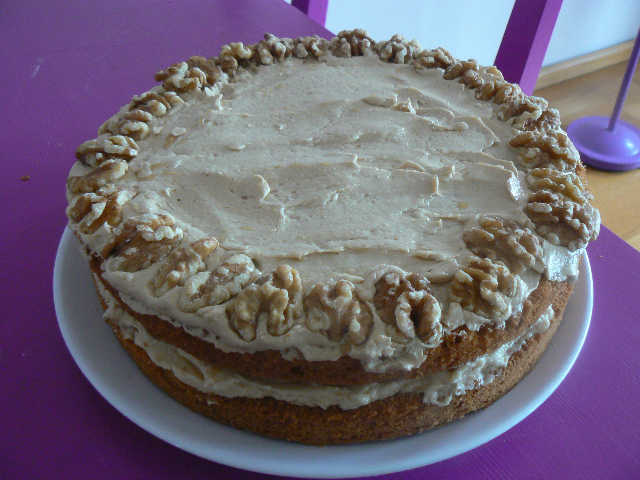2019-2020 COOP study group: All about my mother. Tutor Team: Sepake Angiama, Nina bell F. Partner: Casco Art Institute: Working for the Commons
Student participants:
Mia van den Bos, Saskia Burggraaf, Dayna Casey, Emma de Filippo, Litchi Friedrich, Jiatu Gu, Csilla Klenyanszki, Flávia Palladino, Anakin Xersonsky.
Tutor team:
Nina bell F. for Casco Art Institute: Working for the Commons
All about my mother from Month to Month & Chronicles
All about my mother
What shall we cook together? With whom shall we share it and how?
The word “cook” from the Latin cocus which comes from coquo [to cook, to think, to be unquiet, to worry (about), to mix], which most probably derives from the Greek verb cycao/cacao [stir up, mix of dissimilar things, confusion, disorder].
The 2019-2020 COOP study group “All about my mother” mixes metaphors of the familial and the institutional to shift our relationships toward societal structures of the matriarchal and patriarchal. Can we find m/other voices that undermine a predetermined way of being? Could there be an institution to nurture and sustain a qualitative relation in which existing binary relations–such as men/women, public/private, nature/culture, production/reproduction, art/life and past/present–are undone and opened up for singularities, pluralities and complexities? Taking ingredients from the slow cooking archive of Casco Art Institute: Working for the Commons and elsewhere, this study group will explore the characteristics of the ‘mother’–or others–as a guiding principle in search of answers to the questions above.
In our communal kitchen, we have the following preliminary ingredients, facilities, and cooking methods. More will be added for commonly desired tastes, forms, and textures:
Ingredients
Artworks, Stories, Texts, Books, Projects, Figures, Concepts, Theories, Practices, Relations, Habits, Movements, Affects, Experiences from 30 years of organized and unorganized archives and networks at Casco Art Institute: Working for the Commons
*NB. the list is incomplete and listing is ongoing.
Nina bell F. (Nina Simone, bell hooks, Silvia Federici)
Site for Unlearning (Art Organization)[1] with artist Annette Krauss
All About My Mother (199), Pedro Almodovor
Born in Flames, Lizzie Borden
Born in Flames: Meditations on Armed Re_volutions, Ama Josephine Budge
Matriarchal societies, ie., Nagovisi, Bribri, Minangkabau, and Mosuo
Maintenance Manifesto, Mierle Laderman Ukeles
Casco Art Institute archive (e.g. Grand Domestic Revolution, To Become Two, Arts Collaboratory)
Womanist
Re-enchanting the World: Feminism and the Politics of the Commons, Silvia Federici
The Undercommons: Fugitive Planning and Black Studies, Fred Moten & Stefano Harney
Community Economies
Postcapitalist Politics, J. K Gibson-Graham
Audre Lorde (from The Collected Poems of Audre Lorde: Black Mother Woman; Dear Toni; The Woman Thing; Woman; Pathway: From Mother to Mother; Power; But What Can You Teach My Daughter; Sister in Arms; About Dead Women)
Collectective Amnesia, Koleka Putuma
Ursula K. Le Guin (The Carrier Bag of Fiction; Woman / Wilderness; Is Gender Necessary?; Redux)
Home Tactics: Self-Mapping and the Home Question, Marianna Ortega
Greta Thunberg
Alexandria Ocasio-Cortez
Lygia Clark
Epistemologies of the South, Boaventura de Sousa Santos
A Recipe for Disaster, Carolyn Lazzard
Mother Reader: Essential Writings on Motherhood, Moyra Davey
In Search of our Mothers Gardens, Alice Walker
Center for Ecological Unlearning with the Outsiders and many others
Han Kang
Reunion Network: Reimagine Family and Marriage through Blockchain, Yin Aiwen and Jelena Viskovic
Who’s Afraid of Ideology? Ecofeminist Practices Between Internationalism and Globalism, Marwa Arsario
Zapatistas’ First International Gathering of Women Who Struggle
Women’s work
Mother Tongue
Mothering
M/Other
Gaia, Mother Earth
Motherland
Lose Your Mother, Saidaya Hartman
Shades of Intimacy: Women in the Time of Revolution, Hortense Spillers
Who Really Feeds the World?: The Failures of Agribusiness and the Promise of Agroecology, Vandana Shiva
Chef Mari Pitkänen
Reproducing Autonomy: Work, Money, Crisis and Contemporary Art, Marina Vishmidt & Kerstin Stakemaier
Revolutionary Mothering: Love on the Front Lines, ed. Alexis Pauline Gumbs
Child’s pose
Attachment trauma
What is the mother wound?
Step in stepmother comes from steop, which indicates loss or bereavement
Cinderella's Stepsisters, Toni Morrison
Other forms of conviviality, Park McArthur and Constantina Zavitsanos
Home is where the works starts 1988, Georgia Lucas-Going
How To Live / Rest Together, Christian Nyampeta
Bedside scenes on love and grief (from novels like Edwidge Dandicat’s The Art of Dying, Maggie Nelson’s Argonauts, Terese Marie Mailhot’s Heart Berries, Ocean Vuong’s On Earth We Are Briefly Gorgeous)
Queering motherhood
House mothers in ballroom culture
…
Facilities
DAI roaming locations
Casco Art Institute: Working for the Commons
Respective homes, studios and workplaces
Know-how on cooking methods
Baking
Boiling
(Re)mixing
Breaking open
BBQ
Reduction
Reproduction, cleaning
Unlearning Exercises
Deep listening and witnessing
Observations and interpretations
Discerning, naming and pooling resources
Banking
Slow reading, reading out loud together
Slow discussion
Waiting
Walking
Body and mind exercises
Small-group workshopping
Role play
Film viewing, making, and analysis
Exercises and training camp or school
Face to face meetings, check-ins
Song, rhyme
Looking out for each other, in the sense of access intimacy
Collective agreement on ways of working together
Rotational leadership
Ethical principles
Writing letters, scores, auto fiction, scripts, plays, fictional conversations
Ceramics
Weaving, unraveling, undoing
Carpentry
Publishing, distributing
Playlists
Collecting
Tooling
Commoning
[1] Also see annotated version in Unlearning Exercises: Art Organizations as Site for Unlearning: https://www.casco.art/en/archive/booklaunch

